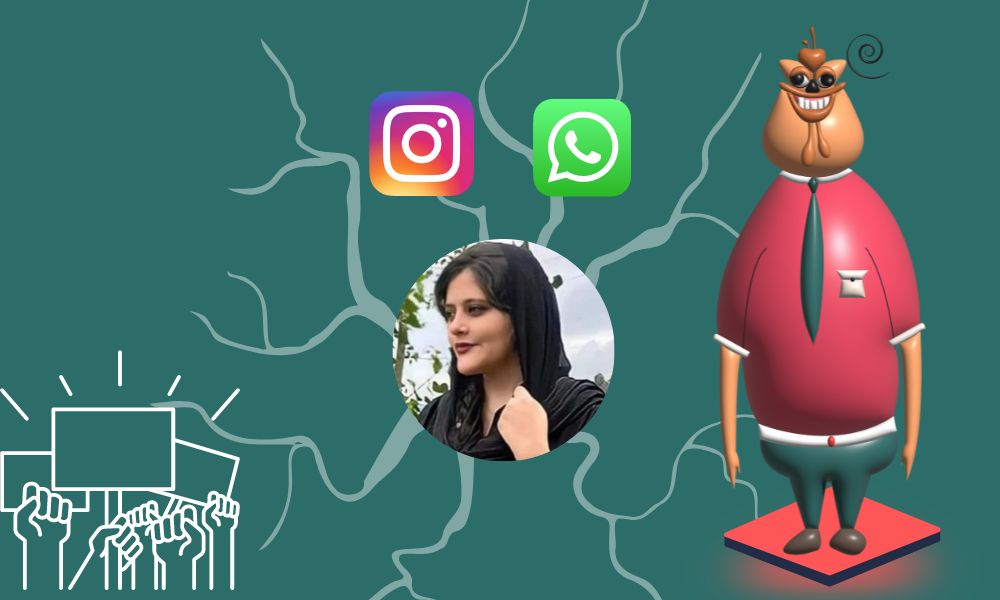
According to citizens and an internet monitor called NetBlocks, Iran has restricted access to the social media networks Instagram and WhatsApp in the midst of protests over the death of a lady who was in the custody of the police.
The disruption of one of the country's largest mobile phone carriers resulted in the loss of internet access for millions of Iranians and led to widespread reports of significant outages across the country.
The murder of Mahsa Amini, a 22-year-old woman who was detained by morality police in Tehran for "unsuitable dress," has triggered a surge of indignation over a variety of concerns, including the lack of freedom in the Islamic Republic and an economy that is struggling as a result of sanctions.
According to Iranian media and officials, there have been at least six people murdered during the protests. In addition, a police officer and two members of a pro-government militia have also been slain.
Activist organizations, on the other hand, report a larger number of fatalities. A "nation-scale loss of connection" was also reported by NetBlocks on the network of Iran's primary mobile telephone carrier as well as the network of another operator.
NetBlocks, a company located in London, said that WhatsApp's servers were affected on a number of different internet providers a few hours after Instagram's services were stopped.
According to the data collected by the organization, internet service has been severely disrupted in certain parts of the Kurdistan province in western Iran since Monday.
At the same time, Tehran and other parts of the country, including other parts of the country, have also faced disruptions since Friday, when the first protests began to take place.
Two citizens of Tehran and southern Iran said that they were only able to send text messages and not photographs via WhatsApp, and that it looked that Instagram was totally barred.
Both sites are owned by Meta, the parent company of Facebook, and are among the few social media networks that are still active.
According to NetBlocks, the interruptions were the "most severe" since 2019, when the government cut off access to the internet for around one week in an effort to quell fuel-related demonstrations.
People who do not have access to the internet find it more difficult to upload videos on social media in an effort to garner support for their cause or to acquire dependable updates on what is taking place.
The area of northeastern Kurdistan in which Amini was born and raised has been experiencing particularly severe turmoil this month.
Amini, who was 22 years old and lived in Saqqez, Kurdistan, was arrested in Tehran for wearing what Iran's so-called "morality police" deemed to be "immodest clothing."
By doing so, she was in violation of Iran's mandatory modest-dress rules, which were implemented not long after the Islamic Revolution in 1979.
The authorities claim that she suffered a stroke as well as a heart attack while she was a patient at a "guidance center," and she was then transported to a local hospital, where she passed just a few days after her admission.
The allegations made by Tehran's police head that Amini had a number of pre-existing ailments, such as epilepsy and diabetes, have been refuted by Amini's family.
The Islamic Republic, which has some of the most stringent internet censorship in the world, often blocks access to popular social media websites including TikTok, YouTube, Twitter, and Facebook.
However, those who are knowledgeable with technology frequently utilize virtual private networks, or VPNs, to get around the limits.